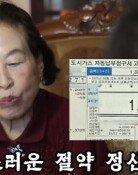Farmland Banking System to be Introduced Next Year
Farmland Banking System to be Introduced Next Year
Posted December. 24, 2004 22:28,
Beginning in 2005, a farmland banking system that manages commissioned farmland will be introduced.
Moreover, 200,000 households will be developed as elite farming households that should be responsible for more than 50 percent of the whole agriculture production by 2013.
The government confirmed its detailed work plans for its comprehensive strategy for agriculture and agricultural villages on December 24 in an economic ministerial meeting convened by Lee Hun-jae, vice economic prime minister at the central government building in Sejong-ro, Seoul.
The farmland banking system to be introduced next year is aimed at a more systemic organization of farmlands by renting farmland purchased or commissioned from urbanites to full-time farmers just like banks conduct deposit and loan services. Urban commissioners can receive rent in the process.
In addition, under the new system, sharp drops in farmland prices can be forestalled through means such as directly purchasing farmland, even when the Korean rice market is opened and imported rice is sold to consumers after rice negotiations.
Jang Tae-pyeong, head of the agricultural structure policy bureau at the Ministry of Agriculture and Forestry, explained, The system will be operated mainly by the Korean Agricultural and Rural Infrastructure Corporation for a certain period of time and will be expanded further to be managed by Nonghyup or general financial corporations, adding, We plan to eventually organize the system to be a provider of farmland-related intelligence and production information.
The government projects to nurture core agricultural human resources through agricultural internships and a venture training system for university students, and to support the system by investing or lending about 2.4 trillion won by 2013.
The system was created after suggestions that the development of new farming workforces is desperately needed at a time when only 7 percent of the whole population is farmers and greater-than-60-year-old managers account for 60 percent of the whole management.
Alongside the system, the government plans to induce Nonghyup unions to merge freely, based on the newly revised Nonghyup law, thereby advancing its organization and pushing for agricultural reform.
Ji-Wan Cha cha@donga.com







